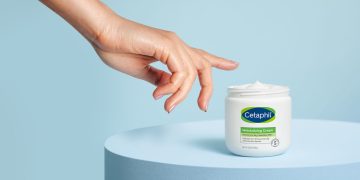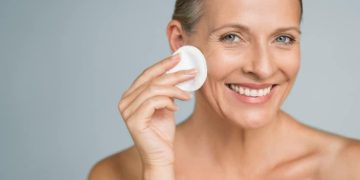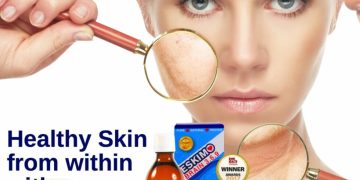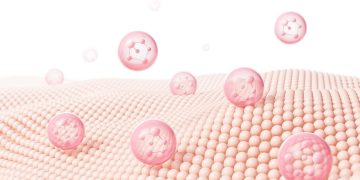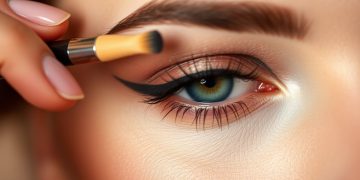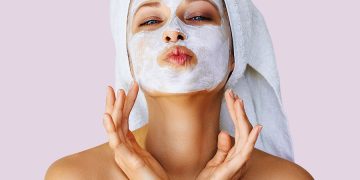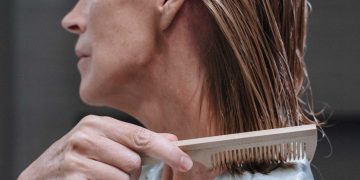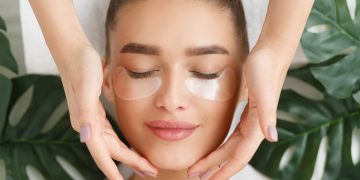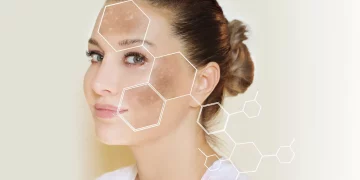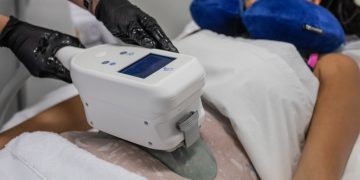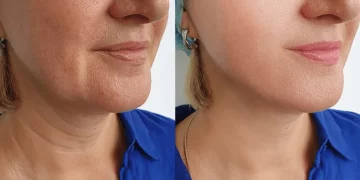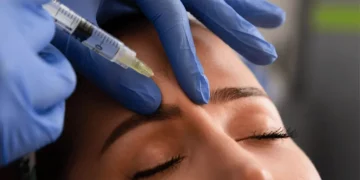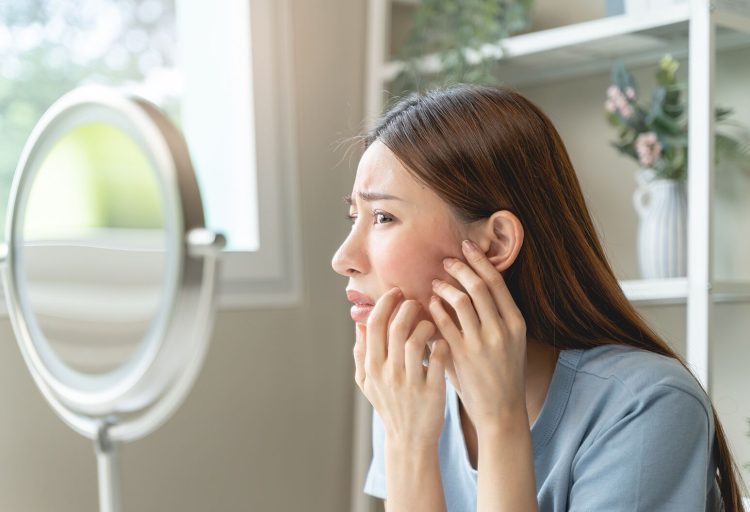Stress is an inevitable part of life. From work deadlines to personal issues, the pressures of modern living can be overwhelming at times. One of the less-discussed side effects of stress is its impact on the skin, particularly in the form of acne. The link between stress and breakouts is often questioned, but research and dermatologists have revealed a compelling connection between the two. In this article, we will explore the science behind stress-induced acne, how stress affects the skin, and strategies for mitigating its impact on your complexion.
1. Understanding Stress and Its Impact on the Body
Before we dive into how stress triggers breakouts, it’s important to understand what happens to your body during stressful situations. Stress activates your body’s “fight or flight” response, which is managed by the sympathetic nervous system. When you’re stressed, your body releases several hormones, primarily cortisol, adrenaline, and norepinephrine, to help you deal with the stressor. While this response is vital for survival, it has significant long-term effects on the body, including the skin.
1.1 Cortisol: The Stress Hormone
Cortisol, often called the “stress hormone,” is produced by the adrenal glands in response to stress. It plays a crucial role in regulating many of the body’s processes, including metabolism, immune function, and inflammation. In small amounts, cortisol can help the body respond to stress. However, prolonged or chronic stress leads to sustained high levels of cortisol in the body, which can have detrimental effects on the skin.
1.2 How Cortisol Affects the Skin
Cortisol can stimulate the sebaceous (oil) glands in the skin, leading to increased oil production. When oil production is excessive, it can clog pores and lead to acne. Additionally, cortisol triggers inflammation in the body, which can worsen skin conditions such as acne, eczema, and psoriasis. This is why many people experience breakouts during stressful times, such as before an important event or during periods of high anxiety.
2. The Link Between Stress and Acne
While stress doesn’t directly cause acne, it creates a perfect storm of conditions that can exacerbate the problem. Here are some of the key ways in which stress can contribute to acne development:
2.1 Increased Oil Production
As mentioned, cortisol increases the production of oil in the skin. This oil, known as sebum, can mix with dead skin cells and dirt, leading to clogged pores. When pores are clogged, they become breeding grounds for bacteria, leading to inflammation and acne.
2.2 Immune System Suppression
Stress also weakens the immune system, making it less effective at fighting off the bacteria that cause acne. Normally, the immune system helps to fight off bacteria and reduce inflammation in the skin. But when under stress, the body’s defense system is compromised, making it harder to prevent breakouts.
2.3 Inflammation and Skin Sensitivity
Chronic stress can trigger widespread inflammation in the body, including the skin. Inflammatory responses increase redness, swelling, and irritation in the skin, all of which can worsen acne. Inflammatory acne lesions, such as cysts and pustules, are more likely to form when stress is a contributing factor.
2.4 Changes in Lifestyle Habits
Stress often leads to lifestyle changes that can indirectly affect skin health. For instance, people may sleep poorly when stressed, which can disrupt the skin’s ability to repair itself overnight. Additionally, stress may lead to poor dietary choices, such as consuming too much sugar or caffeine, which can further promote acne.

3. Identifying Stress-Induced Breakouts
Not all breakouts are the result of stress, so it’s important to differentiate between stress-induced acne and other types of acne. Stress acne often appears in response to a sudden stressor or during periods of heightened anxiety. Here are some common signs that your breakouts may be stress-induced:
3.1 Breakouts Around the Jawline and Chin
Stress-induced acne often appears on the lower part of the face, particularly around the jawline and chin. This is because stress-induced acne is often hormonally driven, and the jawline is where the hormonal fluctuations that contribute to acne typically manifest. If you notice more breakouts in this area during stressful periods, it could be a sign that stress is a contributing factor.
3.2 Cystic Acne
Cystic acne, which consists of painful, deep, and inflamed pimples, is often linked to stress. These deep breakouts occur beneath the skin’s surface and can take weeks to heal. The appearance of cystic acne during stressful events or periods is a strong indicator that stress is playing a role in your skin issues.
3.3 Flare-Ups During Specific Stressful Periods
If you notice your skin breaking out during specific stressful periods, such as before an important meeting, exam, or family event, it may indicate that stress is the underlying cause of your acne. This is particularly true if the breakouts tend to clear up once the stressor has passed.
4. How to Mitigate Stress-Induced Acne
While you can’t always eliminate stress from your life, there are effective ways to reduce its impact on your skin. The following strategies will help you manage both your stress and your acne:
4.1 Practice Stress Management Techniques
The first step in managing stress-induced acne is to address the root cause—stress. Here are some techniques that can help:
- Mindfulness and Meditation: Practicing mindfulness or meditation can help you manage stress more effectively. These practices focus on relaxation and staying present, which can lower cortisol levels and reduce the physical effects of stress on the body.
- Yoga and Breathing Exercises: Yoga, deep breathing exercises, and other relaxation techniques can help calm the nervous system and lower cortisol levels. These activities promote overall well-being and can help reduce the inflammatory effects of stress on your skin.
- Exercise: Regular physical activity helps regulate stress hormones and release endorphins, which are natural mood boosters. Exercise can also improve circulation and support healthy skin by delivering oxygen and nutrients to skin cells.
4.2 Follow a Consistent Skincare Routine
To combat stress-induced acne, it’s essential to have a skincare routine that focuses on keeping the skin clean, hydrated, and protected. Here’s a basic routine for managing stress-related breakouts:
- Gentle Cleanser: Use a gentle, non-stripping cleanser that removes excess oil and dirt without irritating the skin. Avoid harsh exfoliants or products that may dry out your skin, as they can make acne worse.
- Salicylic Acid or Benzoyl Peroxide: These active ingredients target acne-causing bacteria and reduce inflammation. Apply a product containing salicylic acid or benzoyl peroxide to affected areas after cleansing to help clear up breakouts.
- Moisturizer: Even if you have acne-prone skin, moisturizing is essential. Use a lightweight, oil-free moisturizer to keep your skin hydrated without clogging pores.
- Sunscreen: Stress can make your skin more sensitive, so applying sunscreen every day is crucial to protect against UV damage and prevent hyperpigmentation.
4.3 Prioritize Sleep
Sleep is crucial for skin health and overall well-being. Poor sleep can increase stress levels and exacerbate acne. Aim for 7-9 hours of quality sleep each night to allow your skin to repair and regenerate. Establishing a bedtime routine, limiting screen time, and creating a calm sleep environment can all help improve your sleep quality.
4.4 Dietary Adjustments
Your diet plays a role in managing stress and preventing acne. To reduce stress-related breakouts, focus on:
- Anti-inflammatory Foods: Include more anti-inflammatory foods in your diet, such as fruits, vegetables, nuts, and seeds. These foods can help reduce inflammation in the body and prevent acne flare-ups.
- Reduce Refined Sugars and Dairy: Diets high in refined sugars and dairy have been linked to acne in some individuals. Limiting these foods can help manage breakouts, especially if you are sensitive to them.
- Stay Hydrated: Drinking enough water helps maintain skin hydration and reduces the risk of dryness and irritation, which can worsen acne.
4.5 Consult a Dermatologist
If stress-induced acne persists or becomes more severe, it’s a good idea to consult a dermatologist. They can help identify the best treatment options, such as topical prescriptions, oral medications, or light therapies, to help manage stress-related breakouts.
5. Final Thoughts
Stress is an unavoidable part of life, but it doesn’t have to wreak havoc on your skin. By understanding the connection between stress and acne, and implementing stress-reducing techniques alongside a solid skincare routine, you can effectively manage breakouts and maintain a clearer complexion. Taking care of your mental and emotional well-being, in addition to your skin, is key to preventing stress-induced acne and achieving healthy, radiant skin.

